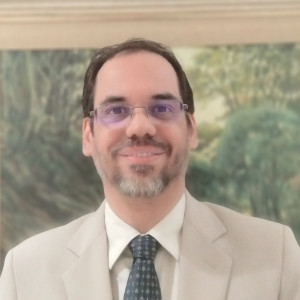Prof. Eduardo Garcia Ribeiro Lopes Domingues

From
Federal University of the State of Rio de Janeiro (UNIRIO) - BR
In residence at
Maison des Sciences de l'Homme Val de Loire (MSH VdL) / University of Tours - FR
Host scientist
Prof. Romeo Carabelli
BIOGRAPHY
Associated Professor at the Federal University of the State of Rio de Janeiro (UNIRIO) - BR of civil and urban law at Undergraduate Law School and at Master's Degree Program in Law and Public Policies. PhD in City Law from the State University of Rio de Janeiro (UERJ). Consultant in Urban Policy and Urban Law of the Brazilian Institute of Municipal Administration (IBAM). Associate Member of the Brazilian Institute of Urban Law (IBDU).
Eduardo Domingues has 18 years of experience working as a legal assistant in urban plan-making with an interdisciplinary team that aids municipalities in the process of elaborating urban master plans, land use law, and other urban laws toward the implementation of the urban local plan and the City Statute, a national general urban law. The work includes the diagnosis phase, the proposals, and the writing of the bill's drafts. All phases are discussed with the local administration officers and technicians and are followed by public hearings. Recently, his research led him to focus on the question of how rural development can be considered in urban planning and how this can help improve environmental protection.
PROJECT
Pursuing democratic environmental urban planning: the role of international law, urban and rural integration, and local actions
The research project works with the hypothesis that integrating urban planning with rural development through environmental protection instruments as key principles is a crucial factor for adapting society to a truly and effective sustainable development for all people.
Based on international statements, like 1972’s Stockholm Declaration, 2015’s Sustainable Development Goals, and 2016’s UN-Habitat New Urban Agenda, urban and rural development and environmental protection actions must be combined to help undermine cities’ growth problems and environmental devastation, acting to ensure the “right to the city” to everyone, either living in urban or in rural areas. The Covid-19 pandemic brought sanitary challenges for urbanism, which are not new. The solution of simple adaptation of capitalist cities to face epidemic will only make increase the environmental devastation and the iniquity.
In order to promote “the right to the city”, equal and sustainable, this research seeks to outline possible responses for David Harvey’s question about how democratic participation and local autonomy can be effective in large scale problems without being a way of privatizing the commons.
We’ll study (i) the integration of environmental protection instruments into democratic urban plans and its extension to rural areas; (ii) the role of international organisms and the role of the uprising “international environmental law”; and (iii) the theories about nature’s legal personality as possible a path to integrate democratic urban plans and rural development by strengthening environmental protection.
Through the lens of public policy cycle and with wide interdisciplinarity, we also aim to investigate local protection actions such as the Loire Valley Parliament initiative for environmental protection through the recognition of Loire River legal personality. We seek to outline legal and administrative actions, to indicate possible paths for international technical and financial support to improve environmental protection via local governments urban planning and non-governmental organizations
actions.

